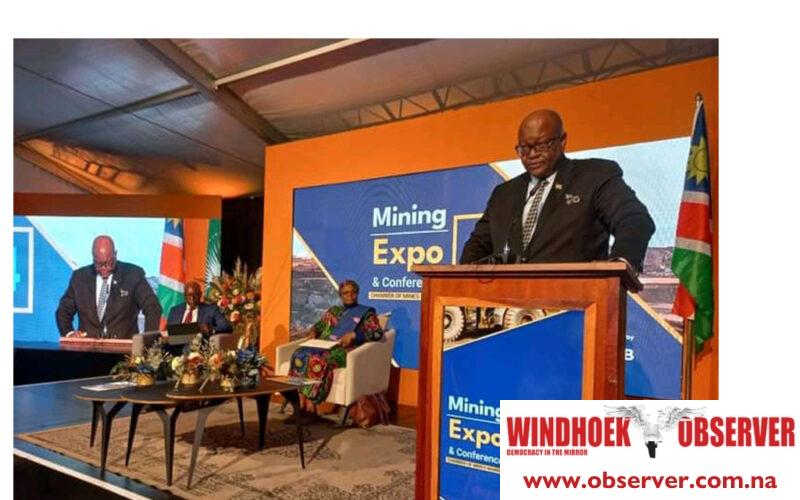Martin Endjala
Namibia’s Chamber of Mines president, Zebra Kasete, has urged the government to focus more on skill development rather than solely on benefiting from mining exploration through taxes and royalties.
He made these remarks during the opening of the 2024 Mining Expo and Conference in Windhoek on Wednesday.
“The government should not be concentrating on the possible revenue from exploration activities but rather focus on skill development to unlock people’s potential,” he said.
He proposed using taxes and fees from the industry to finance and provide people with the necessary skills.
According to Kasete, this approach will empower both the workforce and the mining sector as the industry continues to explore new opportunities, including oil and gas, green hydrogen, and the discovery of new mines.
“The Epangelo mining company is in the right position to unlock the country’s potential and compete with global role players. These are the low-hanging fruits we are talking about,” he said.
Kasete raised concerns about the delay in approving licenses for investors who wish to mine in the country, urging policymakers to expedite the process.
“We want investors to come to Namibia, but if the process of approving licenses is as lengthy as it is now, we are blocking development, meaning people will not benefit. We do recognise the importance of policies in place, but we must create a place-friendly environment,” he noted.
Kasete believes that the country needs development to ensure that Namibians benefit from its resources.
He further stated that in order to maximise the benefits for more Namibians, it is necessary to go beyond taxes and royalty benefits.
Kasete said it is important to consider the potential advantages of extending the lifespan of existing mines and how this can positively impact the local population.
Minister of Mines and Energy Tom Alweendo stated that their commitment to being beneficial custodians of Namibia’s mineral resources is unquestionable.
He urged stakeholders to work together to maximise the economic benefits derived from these resources, which ultimately belong to the Namibian people.
On the issue of value addition, Alweendo expressed concern about those who accuse them of resource nationalism.
“They argue that our policy of insisting on value addition will reduce our investment attractiveness. To the few who hold this view, we respond that this attitude shows a total lack of concern about our socio-economic challenges,” he argued.
However, Alweendo acknowledged that achieving their vision of becoming a significant player in the critical mineral supply chain and ensuring in-country value addition will be challenging.
“We will need to attract the right investment in our country and create a critical minerals sector that is globally competitive,” he said.
According to Alweendo, over the past two years, the ministry has increased its international engagements to raise awareness of Namibia as an attractive investment destination.
He said these efforts have been successful so far, concluding various collaboration pacts, and they will continue to intensify their global outreach.
“We want to collaborate with like-minded international partners to create a successful and competitive critical minerals sector that will have a positive socio-economic impact on citizens. It is our objective to build a critical minerals sector that will create jobs throughout the value chain, starting with exploration, mining, processing, and manufacturing,” he said.
Vice-President Netumbo Nandi-Ndaitwah stated that the government’s vision is to create more economic opportunities for the youth and the Namibian population as a whole.
They are actively involved in discussions to finalise the local content policy for the oil and gas sector.
She emphasised that the government is committed to value addition and is urging partners to understand its position and collaborate for mutual benefit.
“The mining industry is not a sunset industry but is alive with opportunities for us to take advantage of. By cultivating and supporting continued investment in exploration, we increase the probability of discovering new mines and extend the life of mines at existing mines, thereby ensuring this sector continues to grow,” she said.
She also emphasised the need to manage minerals sustainably for future generations because they are not a renewable resource.




